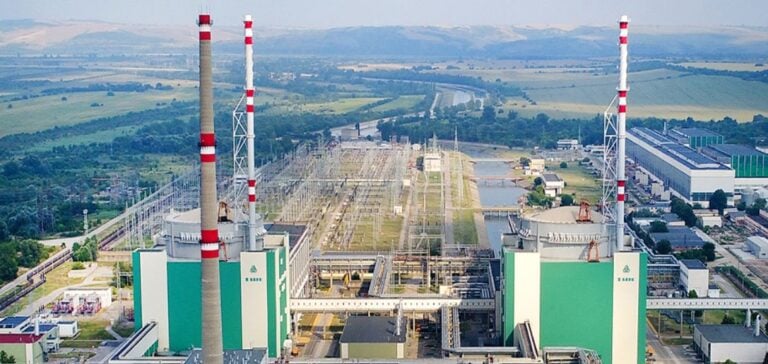Prime Minister Dimitar Glavchev and Acting Energy Minister Vladimir Malinov visited the Kozloduy site, where Westinghouse plans to build two new blocks, units 7 and 8. During the visit, Malinov announced the progressive loading of the first 43 cartridges of new nuclear fuel from May, underlining a strategic shift towards diversified suppliers, including the French company Framatome for unit 6.
New dynamic in fuel supply
In November 2022, Bulgaria’s National Assembly voted to accelerate the replacement of Russia as nuclear fuel supplier for the Russian-designed VVER-1000 units at Kozloduy. A ten-year contract has been signed with Westinghouse for the manufacture and delivery of VVER-1000 nuclear fuel, to be produced at Västerås, Sweden. The Bulgarian Nuclear Regulatory Agency has already granted a license for Robust Westinghouse Fuel Assembly (RWFA) fuel storage, with an operating permit recently issued.
Energy transition and regional impact
The switchover to the new fuel type is scheduled to take four years. Westinghouse has been supplying fuel for VVER nuclear power plants in Ukraine for several years, diversifying its fuel supply even before the current war. The Kozloduy power plant, located in north-western Bulgaria on the Danube, supplies around 34% of the country’s electricity.
Renovation and life extension programs
The two VVER-1000 units currently in operation at Kozloduy have been refurbished and have undergone life extension programs, enabling their operation to be extended from 30 to 60 years. In February, the Bulgarian Parliament authorized discussions with Hyundai Engineering & Construction, the only manufacturer shortlisted for the engineering, construction, delivery and commissioning of the new Westinghouse AP1000 units planned for the Kozloduy site.
The aim is to make a final investment decision by mid-2025, with the first new unit, unit 7, operational in 2035, and unit 8 in 2037. This initiative marks a major step forward for Bulgaria’s energy independence and its position in the European energy market.





















